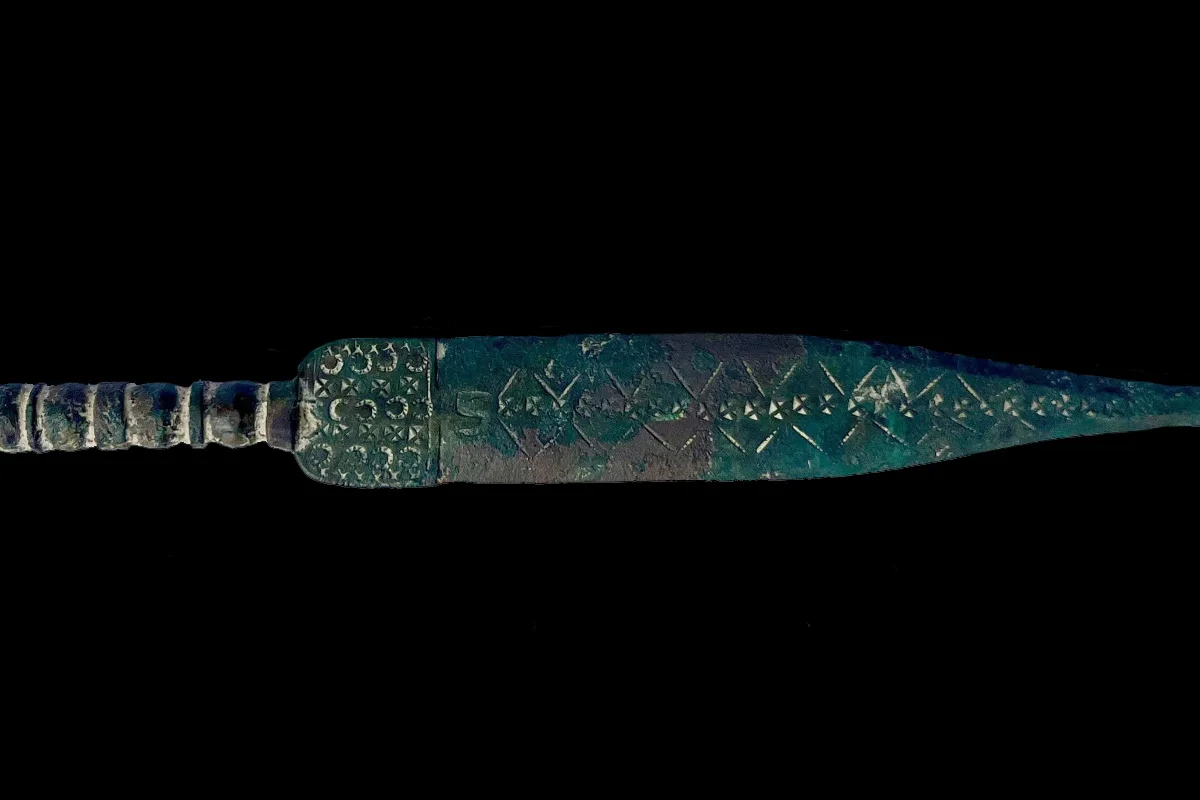Researchers from the St. Cordula Association for the Protection of Monuments have discovered a rare Hallstatt-era dagger, revealed after a storm caused a section of a Baltic Sea cliff to collapse.
The Hallstatt culture was a Late Bronze Age to early Iron Age people that lived in Central Europe from between 1200 BC to 500 BC.
The culture marks a pivotal phase in European prehistory, serving as a bridge between the Bronze Age and the more well-documented societies of the Iron Age. It is widely regarded as the foundation of early Celtic culture in continental Europe.
The dagger was discovered by Jacek Ukowski, president of the St. Cordula Exploration Association for the Rescue of Monuments in Kamień Pomorski, which he found in a lump of clay that fell from a cliff on the Baltic coast.
According to experts, the dagger dates from 2,800-years-ago during the Hallstatt C period of the early Iron Age. Measuring 24.2 cm’s in length, the dagger is finely decorated along the entire blade and hilt which appear to be linear crescents and crosses resembling stars.
Grzegorz Kurka, director of the Kamień Land History Museum, suggested that the dagger’s surface decorations may be connected to a solar cult, implying it likely held ritual significance.
“A true work of art! In terms of workmanship, it is of very high quality, beautifully ornamented. Each engraved element is different. As far as finds in Poland are concerned, I have not come across such a dagger,” said Kurka.
Further studies using a metallurgical analysis will determine the composition of the alloy, the level of copper and tin. “It may be an import and cast in one of the workshops in southern Europe,” Kurka suggested. “The discovery of this dagger is also a testimony to the extraordinary history of the region and Western Pomerania over thousands of years,” Kurka concluded.
Header Image Credit : Facebook Museum of the History of the Kamień Region
Sources : PAP





